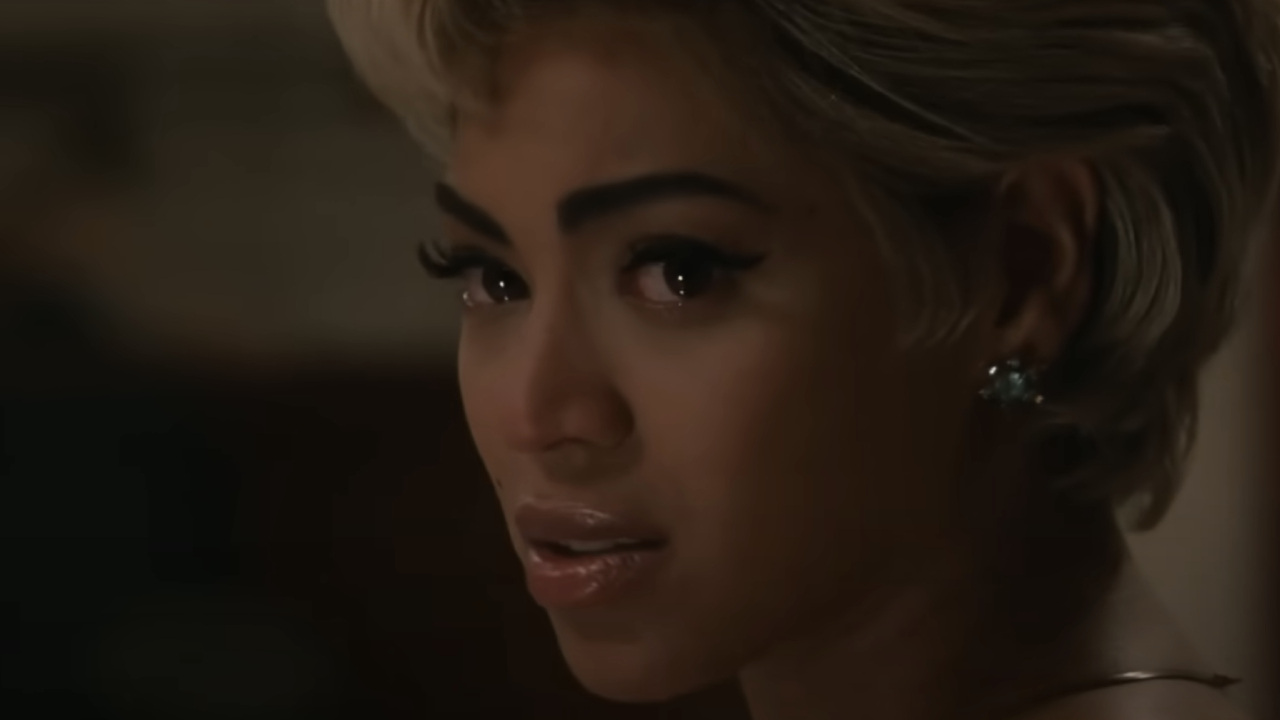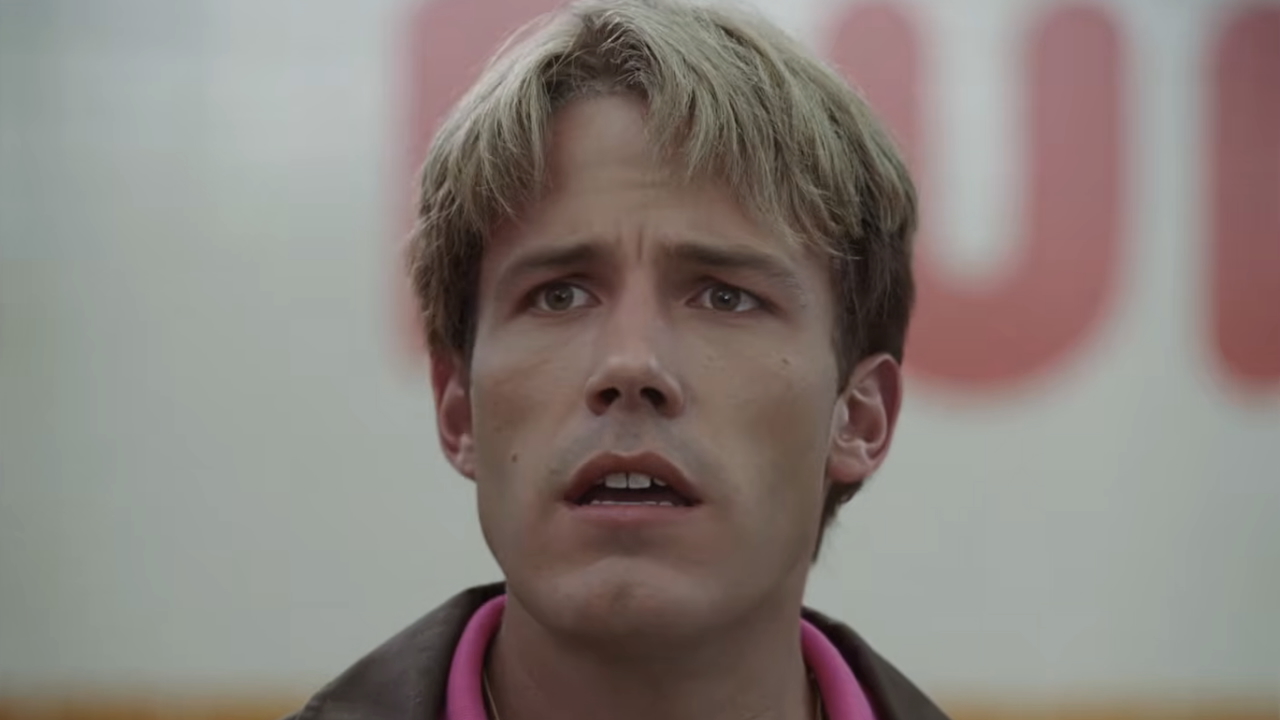Interview: The Cast Of Cadillac Records

Your Daily Blend of Entertainment News
You are now subscribed
Your newsletter sign-up was successful
The press conference for Cadillac Records was long and raucous-- lots of laughter , lots of talking over each other, which makes it that much harder to transcribe of course. But when you've got Jeffrey Wright, Adrien Brody, Columbus Short, Cedric the Entertainer, Eamonn Walker and Gabrielle Union up on stage, plus the woman, Darnell Martin, who directed them all, you don't really have a choice but to share what you heard.
Cadillac Records tells the story of Chess Records, a music label based in Chicago that was the first to bring Mississippi blues to mainstream music. With Muddy Waters, Chuck Berry, Howlin' Wolf, Little Walter and Etta James on the label, Chess was present for the birth of rock and roll, and the galvanizing affect these black musicians had on the civil rights movement.
Below are some of the best excerpts from the press conference, with questions above some of them to give you an idea of what they're talking about. They talk about the characters they play, the influence of the blues on their lives, and what Barack Obama might have to do with the whole thing. Check it all out here.
Jeffrey Wright (Muddy Waters): These guys [the musicians at Chess Records] were not larger than life-- they were as large as life. These guys did everything but put on the cape and mask. They were superheroes. Because they had nothing. They had resistance, if anything. Muddy Waters was a sharecropper, half a minute away from a slave. denied basic freedoms, denied their manhood, denied their humanity. Despite all that, they managed to craft music that had a universal resonance. It was an authenticity to the way they expressed themselves that's undeniable. They were extraordinary characters and extraordinary artists. If artists can be heroes, then these guys are it.
How do you think the election of Barack Obama relates to the racial themes of this movie?
Eamonn Walker (Howlin' Wolf): Darnell has made a very clear line from then to now, where the blues came from, the pain, and that music being able to get them through from whatever they were used to at that time. The undertone is there throughout the whole movie. Everyone who sees this movie will draw the poignancy that we now have the President-elect being the first African-American.
Jeffrey Wright: It could be said that Barack Obama went to Chicago because of Holwing Wolf and Muddy Waters. Or rather, Barack Obama went to Chicago because Howling Wolf and Muddy Waters went to Chicago, and all the folks that they represented. He was going to serve the community that these guys were a part of.
Your Daily Blend of Entertainment News
Cedric the Entertainer (Willie Dixon): I actually talked to a medium, and they spoke to Willie Dixon. And Willie wanted to write a song called "Barack Obama Ain't Got the Blues No More-- President, Dammit." It's a great song. I think these guys would be very happy to know that, from the energy and space of where they came, the time in America that we show in this film, and what they had to live through. As musicians, these guys were very free. You understand that these were racial times, and segregation, and a lot of pressure, but because they were these stars of music, they had a certain freedom that led them to believe they led in a world that was beyond the existence of what really happened. We've still got problems and issues in this country, but I think that spirit and that attitude, writing music and writing songs and being free to do it, you live outside of society. They were all Plaxico Burress.
What kind of research did you have to do to get into your character?
Adrien Brody (Leonard Chess): It is part of what attracts an actor to the role, to learn about, and have a greater understanding, not only of the man or woman that you're playing, but what they embody, and what brings them truth. In this film I don't play the music, but I can speak about connecting to the music.I think everybody here gained this immense appreciation for the blues. I did, for one. It is what's attractive about the whole process. Jeffrey Wright: I had to research all the lawsuits. I hear so many Muddy Waters references now in music that I hadn't before. It's unbelievable, the extent to which he and they influenced modern music.
How did you decide to leave certain real-life figures out of the movie, like Leonard Chess's brother Phil?
Darnell Martin: There's a number of people missing from this. That would have been a miniseries. The main reason for making Phil a background character was because I really wanted to concentrate on the relationship between Muddy and Leonard. The film for me is like a series of love stories. If Phil were there, then he becomes Leonard's confidant. It becomes a film about these two brothers. I wasn't interested in telling the Chess story. I was really interested in talking about how Mississippi blues became popular music, and how it affected civil rights, and how these musicians, these bands, came together. Those families, and those love tories, became more important than their own love stories. Muddy's closer to Little Walter, in a very strange way, than he is to Geneva.
If you could have lived through one particular music era, which would you choose?
Mos Def (Chuck Berry): I would take right now. I'm honored to have been born in the time that created hip-hop. As much as I love the jazz era, all the way from the early 1900s to what Miles was doing, what I like about this generation, the generation that I'm a part of, is it distills a lot of those influences. It's able to reference all of those different idioms without exclusion. Everything from rock and roll to jazz to blues, all of it finds its way in hip-hop. Hip-hop, as a result, influences so much of modern music. Not just the sonic aspect of it. there's a whole other kinetic aspect, dance and the visual aspect. I'm very proud and honored to be a part of that time.
Cedric the Entertainer: I would go for the late 70s. Just so I can play a trumpet or something, and wear a silver suit. Or overalls with no shirt on. Like Earth Wind and Fire. You couldn't get away with that today. Silver overalls with no shirt on and play the trumpet. Those are my thoughts.
Jeffrey Wright: There was a period in the 15th century, in Mali... [laughs] It's always no place like home. But I still wouldn't mind listening to Miles Davis and Coltrane on the stage at the same time. I wouldn't mind doing that.
Mos Def: What you've got to think about that one era too. There must have been one dude who had no idea where he was, what he was watching. And was just talking.You could go back in time and smack that guy.
Gabrielle Union (Geneva, Muddy's long-time girlfriend): I like personal freedoms, so I'm going to go with now. I like voting without harassment, not getting chased by dogs, drinking out of any water fountain I like. If I'm going to be the wife of someone famous, I'd much rather do it now. There's much better swag.
Adrien Brody: I actually had a tremendous connection to hip hop. I grew up in Queens during the birth of hip-hop. The same influences that probably affected Mos. i found a profound connection to the music and that's affected me deeply. That's part of what shaped me as a man. I love music in general, and I love classical music-- I've gained a tremendous appreciation for it. Hip hop was the first music that spoke to me, and that was it for a long time.
Darnell Martin: I love the social music of the 60s, but I've got to say, as a black woman, I don't want to go back in time. It's a scary place.
Columbus Short (Little Walter): I guess I always have this image of carrying Charlie Bird's horn to the clubs with him. I grew up playing the piano, playing drums in jazz trios, things like that. Jazz music has a certain type of language without speaking. I think humanity, we want to evolve to that place where we don't always want to affect people with words. But the music is speaking. When Miles was playing, he was saying a monologue. When you have these guys do what they were doing back then, I want to be right there. I wish I could have sat in on one session. There was a freedom in that time too with the music. Like Mos was saying, hip-hop is who I am. It's who most everyone in this room is right now. It's affected our generation. It's become an incredible, wonderful disease that has taken over our world. Tupac-- which is who I thought Little Walter was, for the time-- Tupac spoke to me. He was saying what he wants to say. He's speaking the truth of what a lot of people see.
Staff Writer at CinemaBlend

